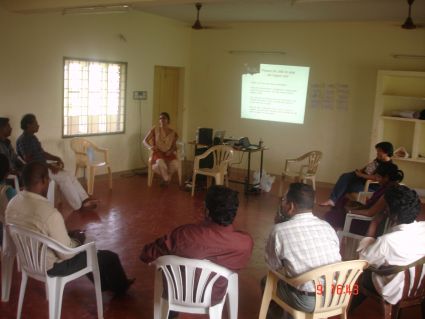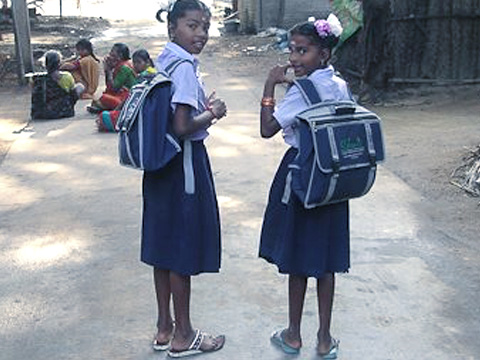-Penned by Team Sharana
The Climate Fresk is an interactive workshop that helps people understand the causes and consequences of Climate Change.
In July of 2022, Ms.Amandine Hersant, volunteer who is also General Manager at Planète Urgence, an NGO, and a trained Climate Fresk facilitator, conducted a workshop for our leadership team.
The Workshop has 3 phases:
1 – Reasoning
Participants discover the game’s cards, they think together to link the cards with each other and thus highlight the causes and consequences of climate change.
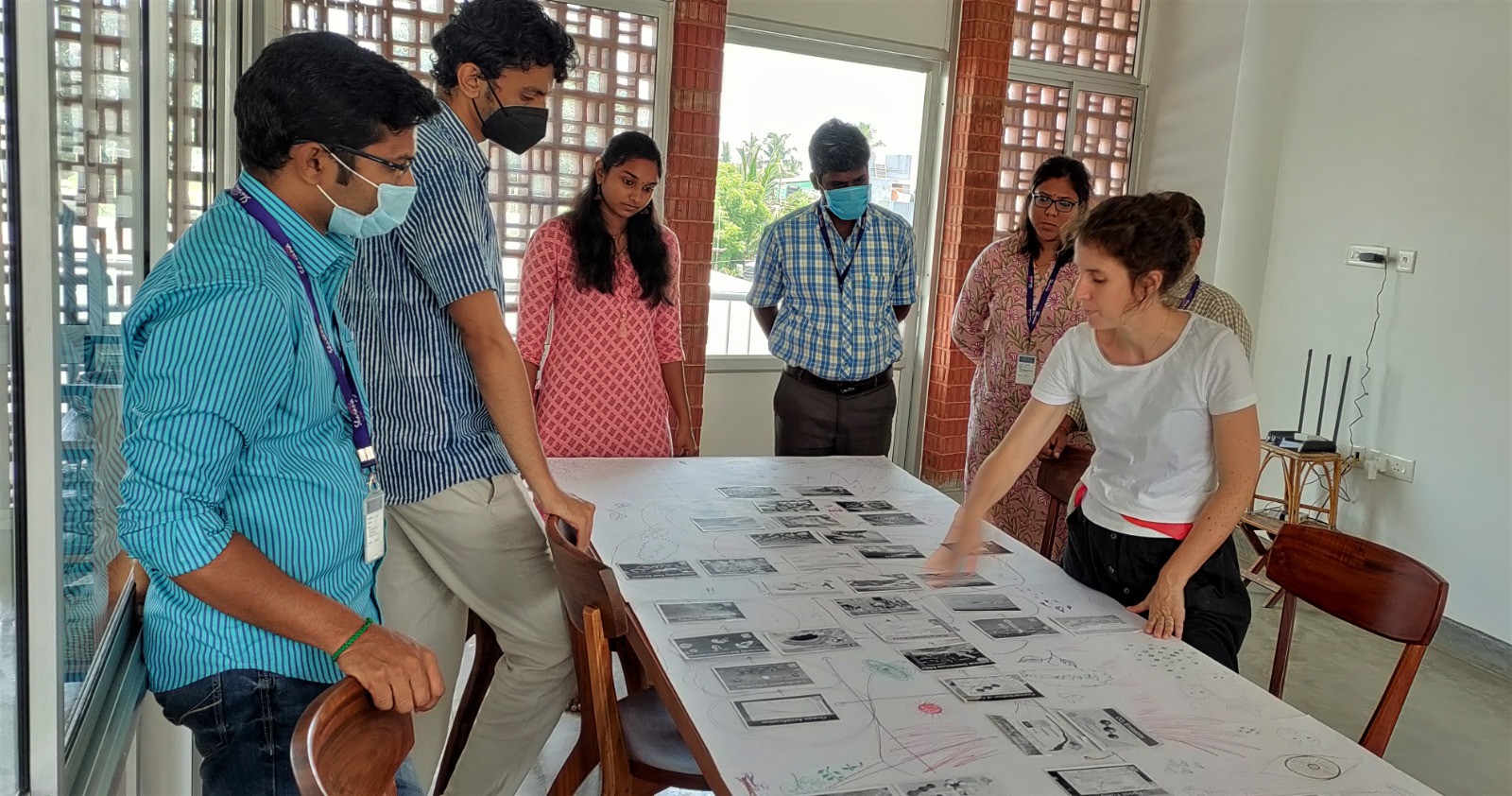 2 – Creativity
2 – Creativity
After identifying the causes, mechanisms and consequences, the participants trace the links and illustrate the Climate Fresk.
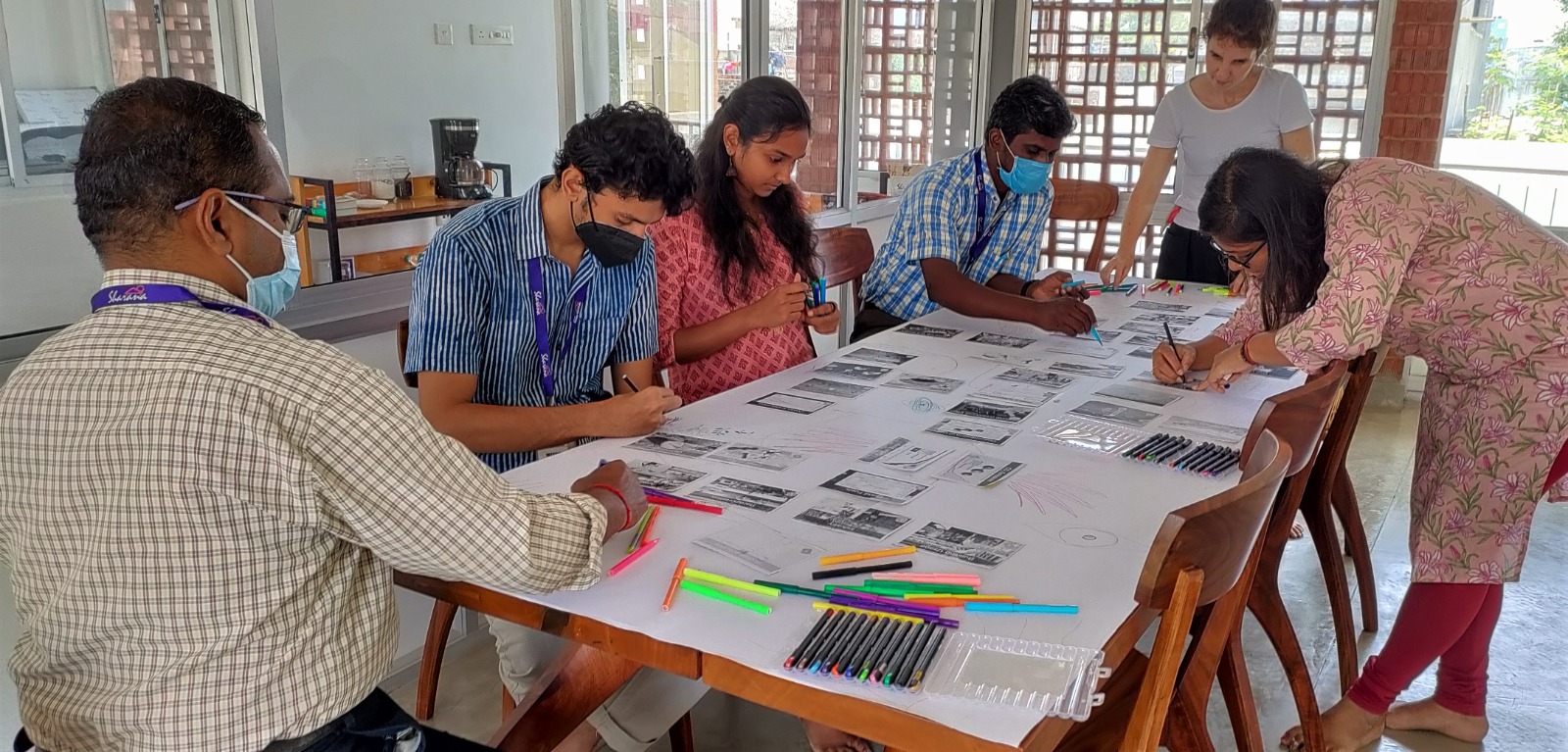 3 – Discussion
3 – Discussion
After this common diagnosis, it’s time for discussion. The aim is to share feelings and reflect on collective solutions, in order to propel action.
As the session progresses, the cards come together in an interconnected map, and a stark picture emerges. This session leaves most people sobered by what they have just learned, as we were during the sharing that takes place in the final phase.
This year, we received another Climate Fresk-trained facilitator- Tom Loiseau, who is halfway through his internship at Sharana. Tom has a degree in Nursing and is pursuing a Masters in International Solidarity Social Action Management.
Tom and Harshitha, Project Lead of the Seeds of Change Program, conducted a Climate Fresk workshop for ten children. The Seeds of Change program is our awareness-through-sports program, of which one of the topics is Climate Change. Harshitha also served as a translator between Tom and the children, who speak mostly Tamil, along with facilitating the session.This version of the Climate Fresk is geared towards 11-15 year olds, which the children were, and has simplified cards.
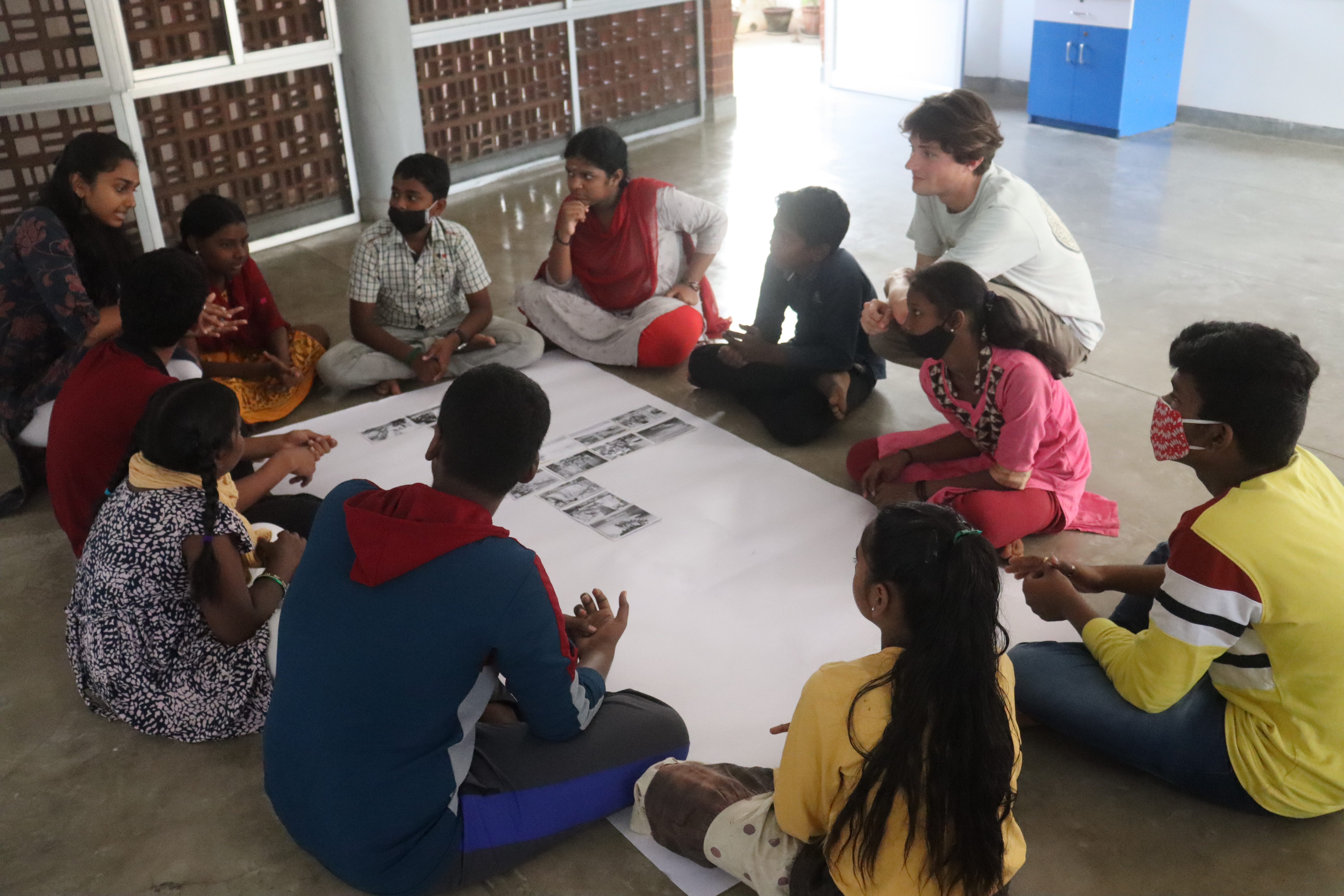 The first step of the Junior workshop is ‘Reflection’ on the cause and effect sequence of each set of cards.The children place the cards on the paper and explain why they placed them where they did. After a brief discussion, they rearrange them according to what they just learned.
The first step of the Junior workshop is ‘Reflection’ on the cause and effect sequence of each set of cards.The children place the cards on the paper and explain why they placed them where they did. After a brief discussion, they rearrange them according to what they just learned.
Then comes the Creativity phase where each child draws and personalises the paper and they collectively decide on a title. This phase was very pleasant for the children and allowed them to put some colour on this big white page for 20 minutes. The children chose a striking title for their work- “Human disaster”.
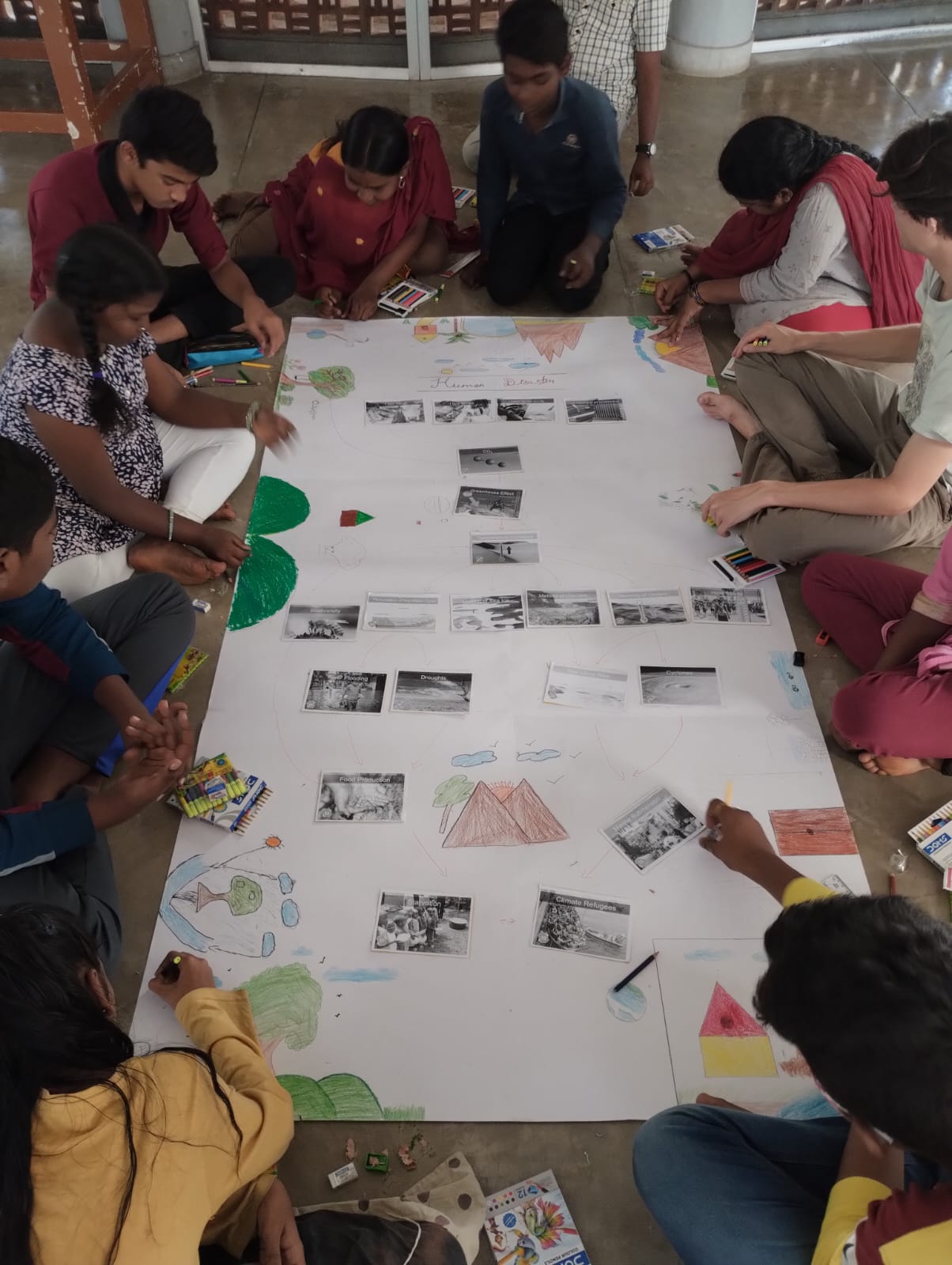 The children were enjoying the Creativity phase so much that the facilitators decided to let them continue and conduct the final phase, debate and Discussion, while they continued to colour the page.
The children were enjoying the Creativity phase so much that the facilitators decided to let them continue and conduct the final phase, debate and Discussion, while they continued to colour the page.
Tom and Harshitha started first by asking them about what they thought during the activity and the various emotions they might have felt. Some children verbalized easily what they felt and others were more reserved, especially the girls. Afterwards, they asked the children about solutions that would allow us to have an impact to reduce global warming.
Some of the children were sad, some scared. Implementing changes in our daily lives to reduce the effects that cause climate change is hard for everyone, more so for the underprivileged and vulnerable. But the first step is awareness, especially in the younger generation, who are more likely to experience the effects of climate change and therefore, feel an urgency to do something about it.








